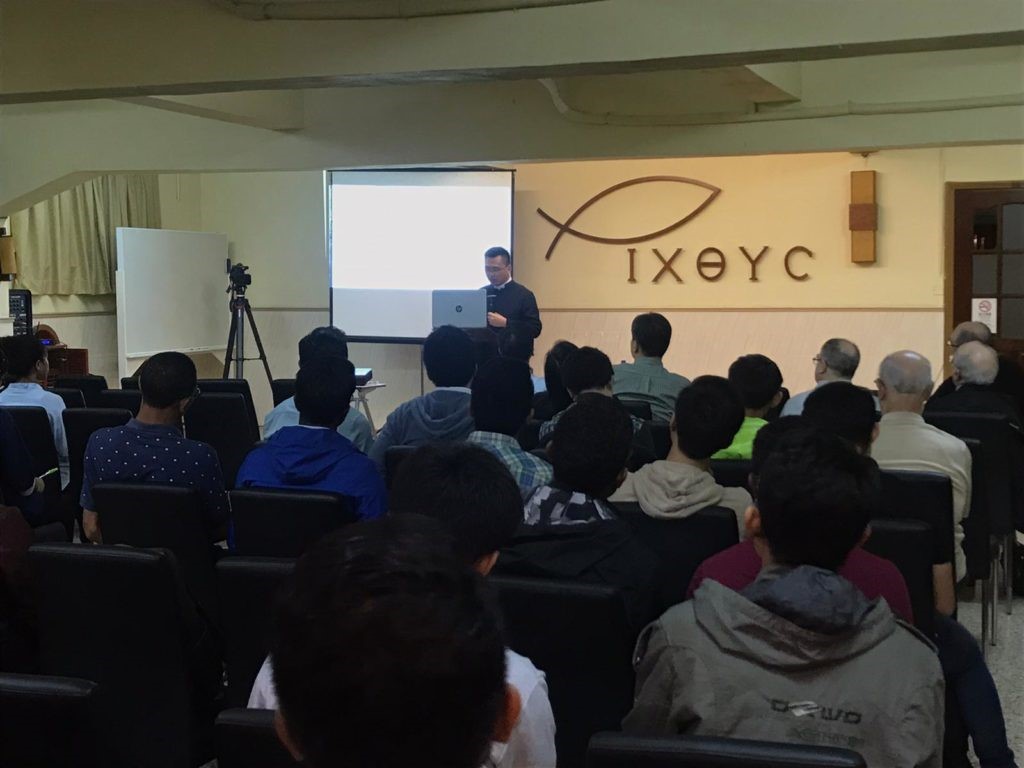– Marco Carvalho
Ill-formulated, badly sustained and injurious to the interests of the Chinese Catholics. These were some of the remarks with which the apostolic letter Maximum Illud was received a century ago in China, in a process in which the “Foreign Missions of Paris” and, to a lesser extent, the Portuguese “Padroado” foreshadowed themselves as two of the main agents of resistance to the changes proposed by Pope Benedict XV in the document. Maximum Illud would eventually revolutionize the way the Catholic Church reached out to the world.
The reluctance with which the priorities set by the apostolic letter were embraced at an early stage by the missionaries and the congregations that developed apostolic work in China set the tone for the sixth of seven lectures with which the Faculty of Religious Studies of the University of Saint Joseph is celebrating the 100th anniversary of the promulgation of “Maximum Illud”, the encyclical with which Benedict XV managed to give a new impetus to the missionary responsibility of proclaiming the Gospel.
Entitled “Minimising Maximum Illud: Early Resistance to Missionary Inculturation in China,” the lecture was conducted by Father Cyril Law. The current chancellor of the Diocese of Macau explained how the excessive subordination of the missionary activities to the French protectorate almost made it impossible for Maximum Illud to be accepted in Chinese territory: “The Chinese mission benefited and enjoyed the protection in particular of the Portuguese ‘Padroado’ and the French protectorate. A lot of the missionary societies had the backing of the national secular powers, which was not a bad thing in itself in the beginning because in China the situation required some sort of inroad,” Father Law told O Clarim. “Later on, that reliance has overtaken the priority of actually evangelizing for the sake of the people with the cooperation and participation of the locals,” the chancellor of the Diocese of Macau says.
Mostly of French origin, the missionaries saw China as a territory in which to expand France’s influence. Such an ascendant of the secular powers explains the resistance of most of the religious congregations to the emergence of an indigenous clergy. For many Chinese, Catholicism was seen as “the French religion” and such a status convinced Benedict XV of the need to “sinicize” the church in China and establish direct diplomatic relations with the Chinese government. The proposed dialogue was, nevertheless, welcomed with suspicion by the republican powers: “It was a very slow and painful process because there were political complications, there was a lot of mistrust by the secular powers. Even the Chinese New Republic, with all its nationalist fervor, made it complicated, because it was a new thing for China. China had never been ruled as a republic. It had been a monarchy all along,” Father Cyril Law recalls.
The celebrations of the 100th anniversary of the promulgation of the apostolic letter Maximum Illud promoted by the Faculty of Religious Studies of the University of Saint Joseph will come to an end on December 11, with the last of the seven lectures announced at the beginning of the year. USJ’s rector, Father Peter Stilwell, will address the role of the Catholic University in the evangelization of the Asian continent.


 Follow
Follow


